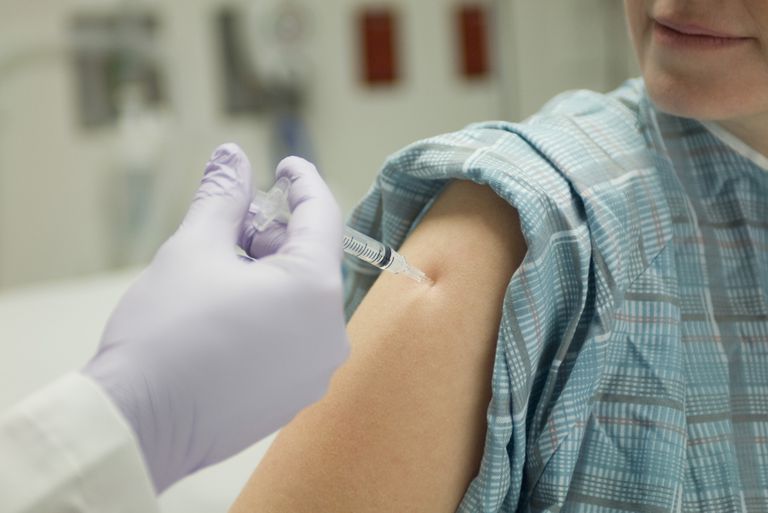Acute myocardial infarction is the clinical nomenclature for what we know in common parlance to be a heart attack. It happens when the flow of blood to the cardiac muscles is suddenly stopped, forming damage to the tissues. Typically, this is the consequence of an obstruction in a single (or multiple) coronary arteries. An obstruction can occur due to plaque build-up. Plaque is a substance majorly composed of cholesterol, fat, and tissue waste.
In this article:
Symptoms of Acute Myocardial Infarction
Causes of Acute Myocardial Infarction
Acute Myocardial Infarction: Risk Factors
Acute Myocardial Infarction: Diagnosis
Acute Myocardial Infarction: Treatment
Acute Myocardial Infarction: Prevention
A Guide for Acute Myocardial Infarction During Pregnancy
Symptoms of Acute Myocardial Infarction
Typical symptoms of heart attacks are:
- Chest pressure
- Pain in various areas of the upper body
- Fatigue
- Perspiration
- Puking
- Mental worry
- Coughing
- Nausea
- Rapid heartbeat
We should note that everyone who suffers from acute myocardial infarctions does not have exactly similar symptoms nor the same degree of impact. For instance, it is more likely for pregnant women than men to show the following symptoms:
Causes of Acute Myocardial Infarction
There are many causes that lead to an acute myocardial infarction during pregnancy:
Saturated Fat
Saturated fats can play a part in plaque buildup in blood vessels. These are present typically in most meat and dairy products, including beef, butter, and cheese. These fats may lead to obstruction in the arteries by increasing bad cholesterol and lessening good cholesterol in your blood system.
Bad Cholesterol
Low-density lipoprotein (LDL), commonly known as bad cholesterol, is among the foremost reasons for obstruction in blood vessels. LDL cholesterol can cling to the artery walls and form plaque. Platelet cells, which assist in the clotting of blood, may adhere to the plaque and accumulate over a long period of time.
Trans Fat
Trans fat is another fat type that is a causative factor to clogged arteries, also known as hydrogenated fat. This type of fat is typically formed artificially and is present in a wide range of processed food items.
Acute Myocardial Infarction: Risk Factors
Certain factors may increase your risk of having a heart attack when undergoing a pregnancy:
Inflated Cholesterol Levels
High cholesterol levels in your blood making it more likely for you to be affected by an acute myocardial infarction. Changes in your diet and specific medications such as statins can lower your cholesterol.
Familial Disease History
It is more likely for you to experience a heart attack if you possess a family history of cardiac disease. The risk is particularly high for you if you have male family members who had heart disease before they were 55 or female members who had heart disease before they were 65.
High Blood Sugar
Diabetes leads to inflated blood sugar, or glucose, levels. This can harm blood vessels and cause coronary artery disease. This serious health condition can initiate heart attacks in quite a few people.
High Blood Pressure
Typical blood pressure is below 120/80 mm Hg (millimeters of mercury) depending on how old you are. Having high blood pressure harms your blood vessels, accelerates plaque buildup, and is one of the leading causes of heart attacks.
Age
As age increases, so does the risk of experiencing a heart attack. Men are at an increased risk after the age of 45, while women are at a higher risk of a heart attack after the age of 55.
High Triglyceride Levels
Triglycerides are another fat type that blocks your arteries. From the food we wat, triglycerides traverse through the blood until they’re amassed in fat cells. However, certain triglycerides can be present in your arteries and be responsible for plaque buildup.
Smoking
Smoking elevates the danger of a heart attack. It can potentially lead to numerous other cardiovascular diseases and conditions too.
There are other risk factors too, which include:
- Hypertension
- Physical inactivity
- Drug abuse
- Preeclampsia, i.e. high levels of blood pressure during pregnancy
Acute Myocardial Infarction: Diagnosis
To find out if you have experienced a heart attack, the medical professional will listen to your heartbeat to inspect any fluctuations. Your blood pressure can be tested too. An electrocardiogram (EKG) test may be conducted to examine the electrical activity of your heart. Blood tests can be run to search for proteins that are linked with heart disease, such as troponin.
Other diagnostic tests are:
- a stress test to ascertain your heart’s response to certain scenarios, like exercise
- an angiogram along with coronary catheterization to confirm arterial blockage
- an echocardiogram to ascertain malfunction in certain areas of the heart
Acute Myocardial Infarction: Treatment
With heart attacks needing instantaneous treatment, most procedures start in the emergency room itself. Angioplasty, a minimally invasive procedure, can be done to unclog the affected arteries. A coronary artery bypass graft (CABG) may be required in some cases. In a CABG, the surgeon will reroute blood vessels, so the blood flow is around, and not through, the blockage.
There are many medicines that can also be used to treat a heart attack:
- Pain relievers to relieve discomfort.
- Antiplatelet drugs, such as clopidogrel, to regulate blood clot formation.
- Blood thinners, like aspirin, to break down blood clots and improve blood flow via clogged arteries.
- ACE inhibitors to decrease blood pressure and decrease cardiac stress.
- Thrombolytics to dissolve clots.
- Nitroglycerin to broaden blood vessels.
- Beta-blockers decrease blood pressure and relax cardiac muscles.
Acute Myocardial Infarction: Prevention
There are many preventive measures one can take to prevent a heart attack.
The first way is to consume a diet healthy for the heart. Such diet should mainly have:
- whole grains
- fruits
- vegetables
- lean protein
Exercising many times on a weekly basis will also better your cardiovascular health. However, if you have experienced a heart attack recently, you should consult a medical professional before beginning with a new exercise regime.
Quitting smoking is another way to decrease your chances of having a heart attack. This will better both your respiratory and cardiovascular health. Secondhand smoke should also be avoided as much as possible.
References
https://www.ncbi.nlm.nih.gov/pmc/articles/PMC6124376/













